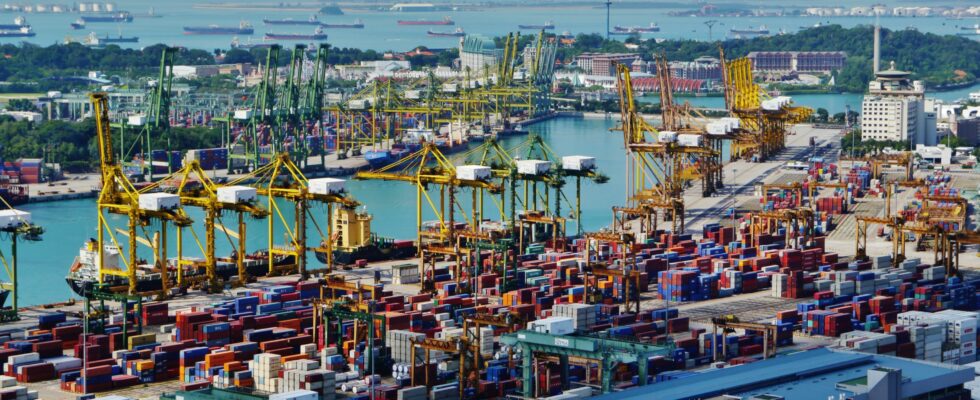Singapore is setting an ambitious target for 2030 to reduce greenhouse gas emissions.
The city-state, which is the second largest container port in the world behind Shanghai, wants to impose stricter standards on port ships that call at its docks. It will thus put in place rules that will lead to the banning of boats running on fossil fuels from 2030.
Stop hydrocarbons
Throughout the world, political powers are committed to reducing the use of hydrocarbons, in order to moderate CO2 emissions in the atmosphere, and therefore reduce the rise in temperatures. Initiatives which can, of course, still stumble in the image of the European Union which has encountered some difficulties in satisfying its desire to ban gasoline vehicles by 2035, but which do not cease to multiply.
This is the case in Singapore, one of the largest ports in world trade, whose authority in charge of its operation has just taken an important decision. From 2030, all new ships docking in the port will either have to be electric, run on B100 biodiesel, or run on non-CO2 emitting fuels like hydrogen.
The new yes, but the old?
A decision that follows other commitments from the port, which will in particular begin to install charging stations for electric ships this year. Singapore, an essential global trading hub with its geographical location at the end of the Malay Peninsula at the Strait of Malacca, aims to become a port with zero CO2 emissions by 2050.
But the devil is in the details. The Port and Maritime Authority of Singapore wants to prevent access to its docks to new ships. What should we understand? Will thermal ships built before 2030 be able to drop anchor there, unlike those produced after? For the moment, no details have been provided by the sumptuous Asian city.
Source : Electrek

12